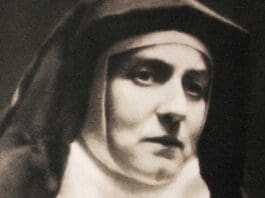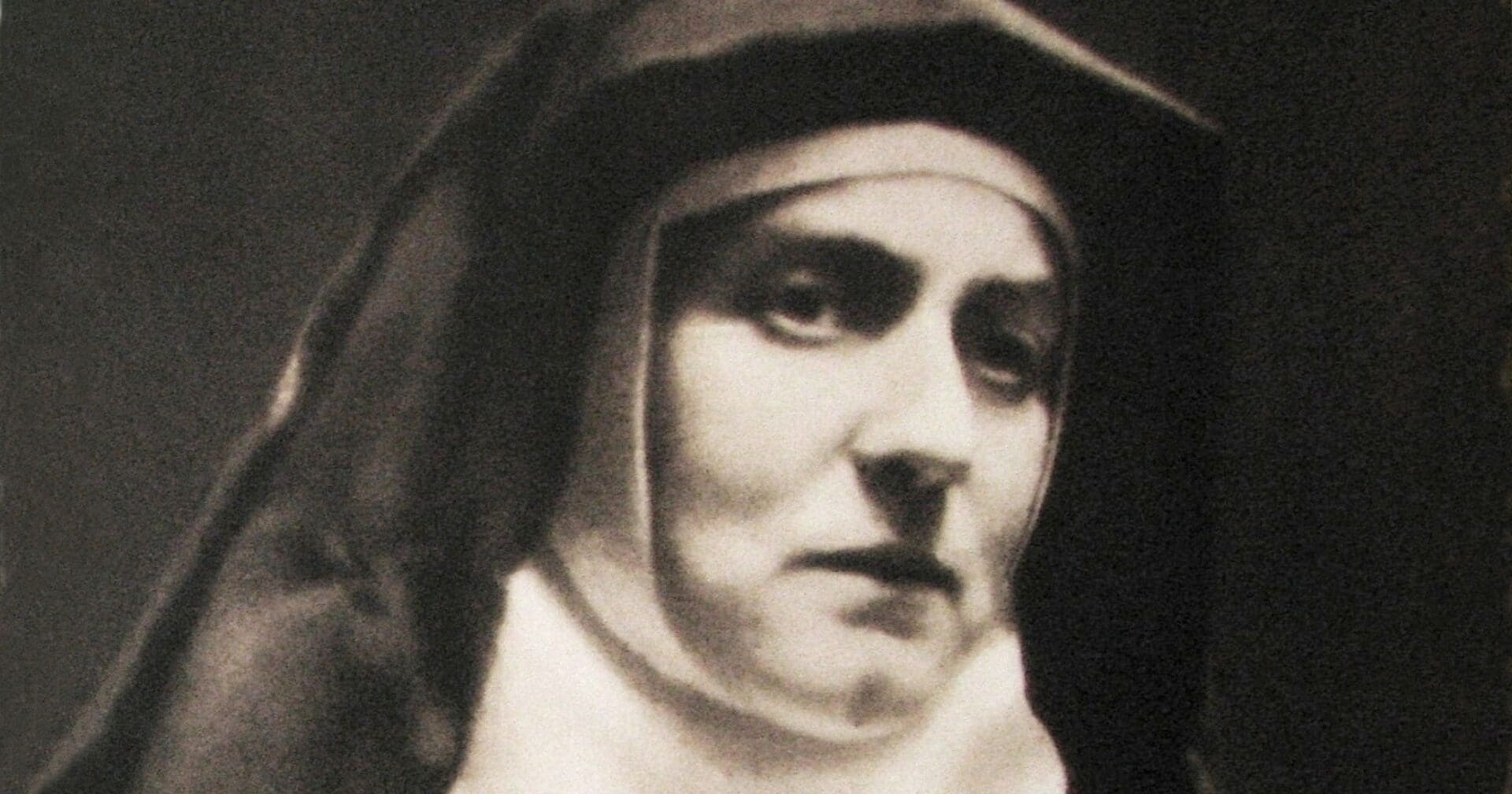
Born Edith Stein on 12 October 1891 in Breslau, Germany (now Wrocław, Poland), Saint Teresa Benedicta of the Cross was an exceptional figure with deep intellectual and spiritual interests. She was the youngest of 11 children in a devout Jewish family. However, during her teenage years, Edith declared herself an atheist.
Edith’s intellectual prowess led her to the University of Göttingen, where she was influenced by the teachings of the prominent philosopher, Edmund Husserl. Her studies in phenomenology culminated in a doctorate in 1917, after which she worked as Husserl’s assistant. Despite her academic success, Edith’s spiritual journey led her to a transformative moment in Frankfurt Cathedral where she witnessed a woman’s deep devotion. This, coupled with reading the autobiography of St. Teresa of Avila, set Edith on a path back to faith.
In 1922, Edith was baptized into the Catholic Church. She yearned for deeper consecration and entered the Carmelite Convent in Cologne in 1933, taking the name Teresa Benedicta of the Cross.
However, as the dark cloud of Nazism spread over Germany, Edith, being of Jewish heritage, faced increasing persecution. In an effort to protect her, the Church transferred her to a convent in the Netherlands. But the Nazi grip extended there too, and in 1942, she was arrested.
Edith Stein, along with her sister Rosa who had also become a Catholic and a Carmelite, died in the Auschwitz concentration camp, martyred for her Jewish ancestry, Christian faith, and outspoken criticism of Nazism.
In 1998, Pope John Paul II canonized her, recognizing her as Saint Teresa Benedicta of the Cross.
Photo credit: Public Domain via Wikimedia Commons
The post Saint Teresa Benedicta of the Cross (Edith Stein) appeared first on uCatholic.
Daily Reading
Tuesday of the Thirty-fourth Week in Ordinary Time
Reading 1 RV 14:14-19 I, John, looked and there was a white cloud, and sitting on the cloud one who looked like a son of man, with a gold crown…
Daily Meditation
Do Not Be Led Astray, Do Not Fear
Click here for daily readings In this somewhat confusing Gospel passage Jesus says two things in particular that stand out to me. “Take heed that you are not led astray”…




